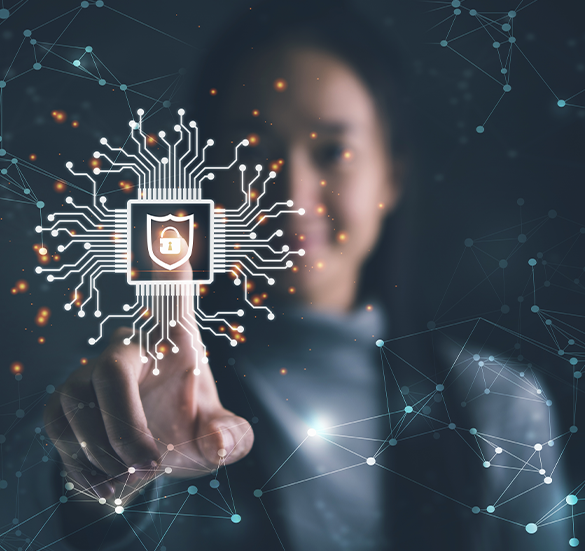This website uses cookies so that we can provide you with the best user experience possible. Cookie information is stored in your browser and performs functions such as recognising you when you return to our website and helping our team to understand which sections of the website you find most interesting and useful.

Related Category Blog
Archives by Month:
Business Protection with Cybersecurity for a Hybrid Workforce

Protecting Your Business in the Age of Hybrid Workforce: Cyber Security Essentials to Know
The world is changing, and so is the way we work. With the rise of hybrid workforces, businesses are facing a new set of challenges when it comes to protecting their assets and information. Cybersecurity threats are becoming increasingly sophisticated, and businesses of all sizes and industries are at risk. As a highly skilled assistant with expertise in digital marketing, I understand the importance of protecting your business in the age of hybrid workforces. In this article, we’ll explore the essential cybersecurity measures that you need to know to keep your business safe. From secure remote access to employee training, we’ll cover everything you need to know to protect your business from cyber threats in the new era of work.
Cybersecurity risks facing businesses in the age of hybrid workforces
In the age of hybrid workforces, businesses face a wide range of cybersecurity risks. With employees working from home or on the go, businesses must contend with new threats to their networks, devices, and data. Among the most common risks facing businesses today are phishing attacks, ransomware, and data breaches. Phishing attacks typically involve tricking users into giving away sensitive information, such as passwords or credit card numbers. Ransomware, on the other hand, involves encrypting a user’s files and demanding payment in exchange for the decryption key. Data breaches can occur when sensitive information is stolen or accidentally leaked.
To protect against these and other cybersecurity risks, businesses must take a proactive approach to cybersecurity. This includes implementing robust security measures, such as firewalls, antivirus software, and intrusion detection systems. It also involves educating employees about cybersecurity best practices and the importance of safeguarding sensitive information. By taking a comprehensive approach to cybersecurity, businesses can minimize their risk of cyber attacks and protect their assets and information.
The importance of cybersecurity for businesses
In today’s digital age, cybersecurity is more important than ever for businesses of all sizes and industries. Cyber attacks can have devastating consequences for businesses, including lost revenue, damaged reputation, and legal liabilities. In some cases, cyber attacks can even result in the closure of a business. Given the high stakes involved, businesses must take cybersecurity seriously and invest in the necessary resources to protect their assets and information.
One of the key reasons why cybersecurity is so important for businesses is that cyber-attacks are becoming increasingly common and sophisticated. Hackers and cyber criminals are constantly developing new ways to breach networks, steal data, and extort money from businesses. As a result, businesses must stay one step ahead of these threats by implementing robust security measures and staying up-to-date on the latest cybersecurity trends and best practices.
Best practices for securing remote workers and devices
In the age of hybrid workforces, securing remote workers and devices is more important than ever. To protect against cyber threats, businesses should implement a range of best practices for securing remote workers and devices. This includes providing employees with secure remote access solutions, such as virtual private networks (VPNs) or remote desktop solutions.
Another important best practice is to implement mobile device management (MDM) solutions to help secure and manage employee devices. MDM solutions such as The IBM® MaaS360® can help enforce security policies on employee devices, such as requiring strong passwords and encrypting data. Additionally, businesses should consider implementing endpoint detection and response (EDR) solutions to help detect and respond to cyber threats on employee devices.
To ensure that employees are following cybersecurity best practices, businesses should provide regular cybersecurity training and education. This can help employees understand the importance of cybersecurity and how to identify and avoid common cyber threats. By providing employees with the necessary tools and training, businesses can minimize their risk of cyber attacks and protect their assets and information.
Redington works with leading brands like IBM, Microfocus and Splunk to offer tools suchand services to help businesses become more cyber-resilient in the face of threats and data breaches
Cybersecurity tools and technologies for businesses
To protect against cyber threats, businesses can leverage a range of cybersecurity tools and technologies. One of the most important tools for businesses is antivirus software, which can help detect and remove malware from employee devices. Additionally, businesses should consider implementing firewalls and intrusion detection systems to help detect and block suspicious network traffic.
Another important cybersecurity technology for businesses is security information and event management (SIEM) solutions. With the support of IBM, Redington offers QRadar which prioritizes high-fidelity alerts to help monitor network activity and detect cyber threats in real-time. Additionally, businesses can leverage threat intelligence solutions to help identify and respond to emerging cyber threats.
To ensure that employees are following cybersecurity best practices, businesses can implement security awareness and training solutions. These solutions can provide employees with interactive training modules and simulations to help them understand the importance of cybersecurity and how to identify and avoid common cyber threats.
Protecting your business in the age of hybrid workforces is essential
In the age of hybrid workforces, businesses must contend with a wide range of cybersecurity risks. From phishing attacks to ransomware and data breaches, cyber threats are becoming increasingly sophisticated and widespread. To protect against these threats, businesses must implement a comprehensive cybersecurity strategy that includes robust security measures, employee training, and the latest cybersecurity technologies.
By following best practices for securing remote workers and devices, leveraging cybersecurity tools and technologies, and working with cybersecurity services and providers, businesses can minimize their risk of cyber-attacks and protect their assets and information. Ultimately, protecting your business in the age of hybrid workforces is essential for ensuring the long-term success and viability of your organization.





